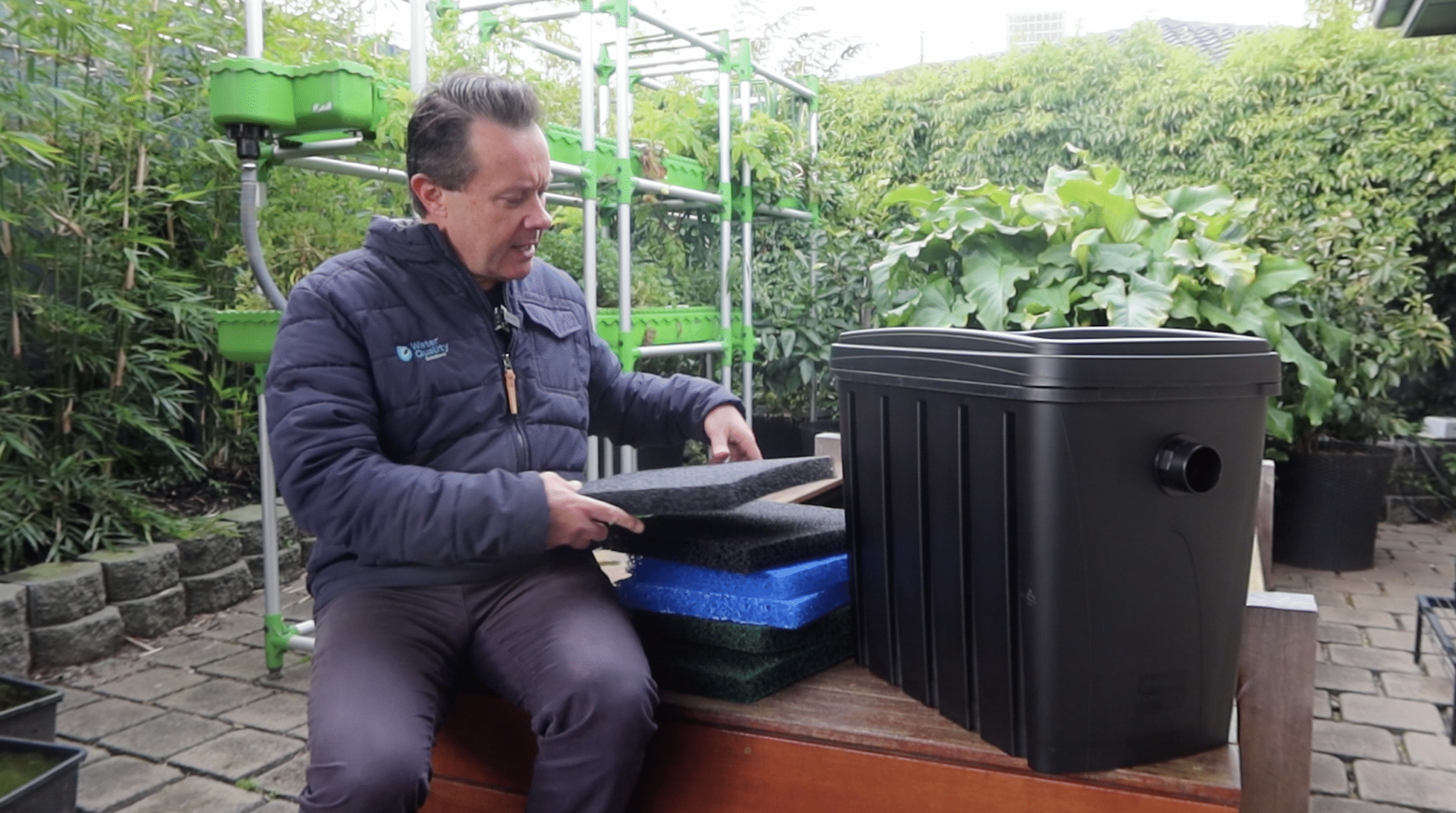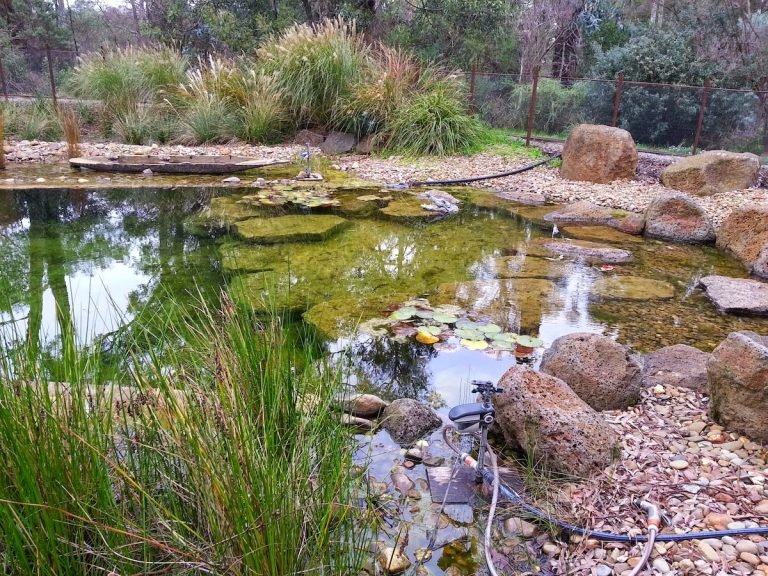What Are the Benefits of a Bio Filter?
Do you want to purify your water feature? Bio filtration could be the answer to effective water and air treatment.
As the demand for enhanced environmental quality increases, understanding how bio filtration becomes essential. This natural treatment process aims to support your ecosystem by breaking down pollutants and protecting healthy microorganisms. Learning about bio filtration can help you choose the best filter.
Keep reading our guide below.
What Is Bio Filtration?
Bio filtration is essential for purifying water and air. Bio filtration breaks down and neutralises pollutants in water rather than using chemical treatments.
Bacteria, fungi, and other microorganisms convert contaminants into harmless substances. This is how bio filtration can restore and maintain the balance in your ecosystem.
These microorganisms thrive on organic matter to break down pollutants in water treatment. These pollutants could be unnecessary nutrients, oils, and complex chemicals. This natural purification process mimics healthy ecosystems, where microorganisms maintain ecological balance.
Bio filtration doesn’t just work for water treatment. Airborne pollutants from industrial processes or everyday activities cannot survive bio filtration systems. These systems actively capture and degrade pollutants by using specially designed filters that hold various microorganisms.
How Does a Bio Filter Work?
Bio filtration relies on microorganisms like bacteria and fungi, which are essential for the natural purification process. These microscopic components attach themselves to surfaces within the filtration system. In turn, this process creates a healthy microbial community.
As water or air with impurities passes through the bio filter, the microorganisms stimulate the purification process. They utilise pollutants as a source of nutrients, which digest and transform contaminants into benign byproducts. This digestion process is creative and sustainable, as it harnesses the inherent metabolic capabilities of these tiny environmental microorganisms.
Unlike conventional filters that may require frequent replacements, the living nature of bio filtration systems offers a unique advantage. The microbial community is a self-sustaining filter medium, continually adapting to changes in pollutant composition and concentration.
Our Matala Biosteps 10 Biological Filter works just the same since it provides biological and mechanical filtration. It is suitable for 10,000L fish ponds or 5,000L koi ponds, depending on how much water and air you want to purify. This filter has an anti-clogging filter media, meaning you don’t have to replace or clean any foam.
Investing in the Matala Biological Filter can help balance your ecosystem while providing filtration for larger ponds and high numbers of fish.
6 Benefits of Using Our Matala Biosteps 10 Biological Filter
The advantages of bio filtration offer various benefits that extend beyond traditional filtration methods. Understanding these benefits can help you make a more informed decision for your investment.
Check out the benefits here:
1. Improves water quality
Bio filtration can protect your pond against water pollution. By leveraging natural processes and the metabolic activities of microorganisms, it effectively removes impurities and contaminants from water sources. This microbial process strips away impurities, leaving behind water that is not just visibly clearer but also free from various harmful substances.
From industrial wastewater to urban runoff, bio filtration systems are natural purifiers that ensure the water that reaches our taps is cleaner and safer.
Microorganisms eat plant matter, sewage, and other organic pollutants during wastewater treatment. Enzymes break down these complex organic substances into simpler, environmentally friendly products. This process removes visible impurities and manages the cause of water pollution.
Biofiltration is also capable of removing heavy metals from water. Microorganisms can bind to heavy metals and transform them into less toxic forms. This is essential in industrial settings where heavy metal discharge is a common concern. Bio filtration becomes a sustainable solution for mitigating heavy metal pollution and improving overall water quality.
2. Enhances air quality
Bio filtration can also purify the air by removing harmful toxins. A bio filter can capture and eliminate pollutants from the air by using similar biological processes. This is valuable in indoor environments, where air quality can significantly impact human health. From homes to offices, bio filtration contributes to creating healthier breathing spaces.
In industrial applications, the air often carries the burden of pollutants generated by manufacturing processes. The air is drawn through bio filters containing colonies of microorganisms.
Microorganisms in bio filters transform volatile organic compounds (VOCs), odorous compounds, or other airborne pollutants into non-harmful components.
3. Environmentally friendly
One of the main features of bio filtration is its eco-friendly nature. Many traditional filtration methods rely heavily on energy-intensive processes or chemical additives. However, bio filtration uses nature’s own microorganisms. This process reduces the carbon footprint associated with water and air treatment, aligning seamlessly with the global push for sustainable practices.
A balanced and resilient ecosystem depends on the presence of diverse flora and fauna in constructed wetlands and natural biofiltration systems. It also creates habitats and purifies water, as well as supporting biodiversity.
4. Promotes ecosystem health
Aquatic ecosystems also benefit from the improved water quality. As the natural process removes pollutants, it also preserves the delicate balance of aquatic environments. This supports the health of aquatic flora and fauna, creating a ripple effect that contributes to overall ecosystem resilience.
Moreover, bio filtration systems contribute to the preservation of natural habitats. It does this by preventing harmful substances in rivers, lakes, and other water bodies. This preservation ensures that ecosystems continue to thrive and provide essential services to the planet.
Bio filtration also plays a crucial role in terrestrial environments. The air purification aspect of bio filtration translates into the reduction of atmospheric pollutants that can impact plant health and soil quality.
5. Minimal maintenance requirements
This biological filtration process relies on a natural process, meaning it doesn’t require much maintenance.
Microorganisms are adept at self-regulation. Once you establish a bio filtration system, the microbial communities within it form a dynamic ecosystem that can adapt to changing conditions, ensuring continued functionality with little human intervention.
Routine maintenance tasks associated with traditional treatment systems, such as the replacement of filter media or the addition of chemical agents, are reduced in bio filtration. The microorganisms responsible for breaking down contaminants are self-sustaining. This means as long as the environmental conditions within the system remain within a reasonable range, these microorganisms can continue their work.
Also, the strong nature of bio filtration systems often means that they can withstand variations in influent water quality without a significant impact on performance. This adaptability reduces the need for constant adjustments or fine-tuning, further contributing to the overall ease of maintenance.
6. Reduced dependency on chemicals
While some chemical treatments play a crucial role in neutralising pollutants and ensuring the safety of our resources, their widespread application comes with its own set of environmental and health concerns. This is where bio filtration is suitable for sustainable practices, significantly reducing our reliance on synthetic chemicals in the pursuit of cleaner water and air.
Water treatment plants sometimes use coagulants, disinfectants, and pH adjusters. However, depending on these chemicals raises questions about their long-term impact on ecosystems. The same goes for potential risks associated with the discharge of treated water into natural water bodies.
Bio filtration is a naturalistic process led by microorganisms. The magic happens within the bio filters, where colonies of microorganisms actively participate in breaking down pollutants. This microbial process reduces the need for synthetic chemicals.
Bio filtration systems use microorganisms to break down smelly compounds. This means you don’t have to mask odours with artificial fragrances or neutralise them with chemical agents. This eliminates the need for chemical deodorizers and addresses the root cause of odorous emissions.
Final Thoughts
Bio filtration, with its reduced dependency on chemicals and adaptability to diverse pollutants, uses biological processes to preserve the integrity of our vital resources.
From the microorganisms breaking down contaminants to the ecosystems thriving under its influence, bio filtration promotes a holistic, environmentally friendly approach that outweighs traditional methods. You can use these filters to instantly enhance your water feature and protect it in the long term.
You can invest in our Matala Biosteps 10 Biological Filter to help balance your water’s ecosystem again. For more information on installing and maintaining this filter, contact our team today!




